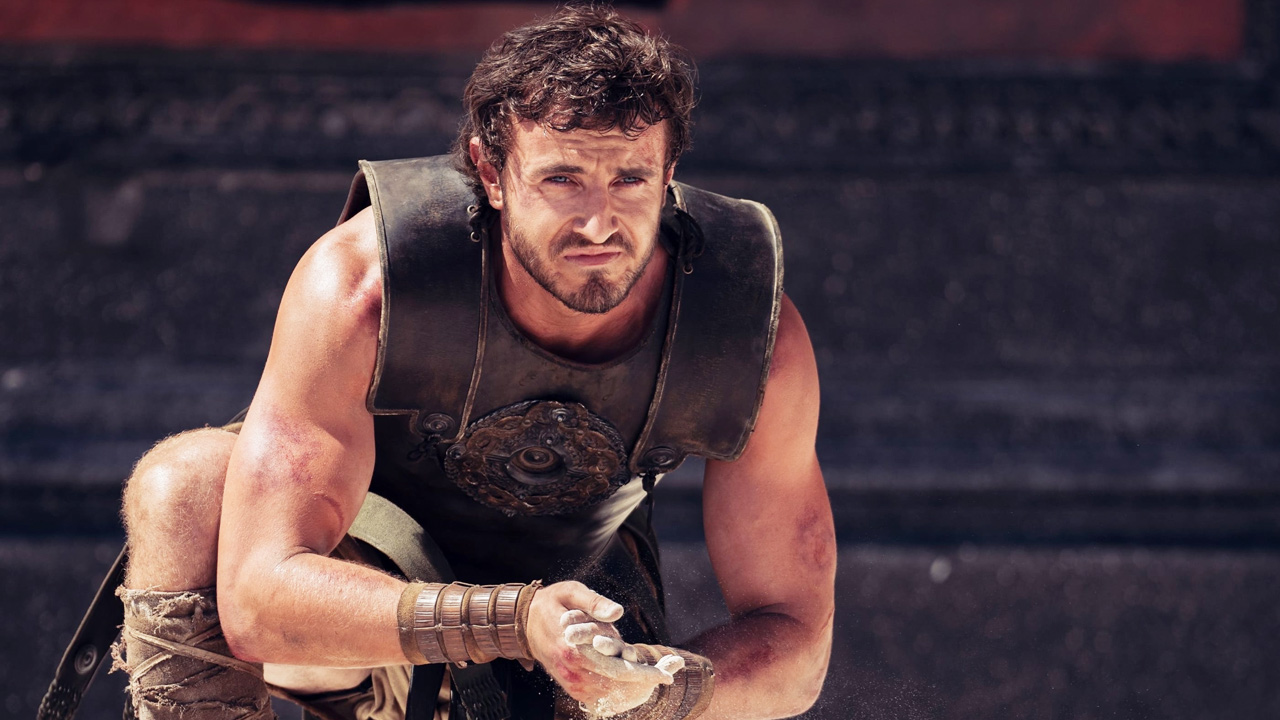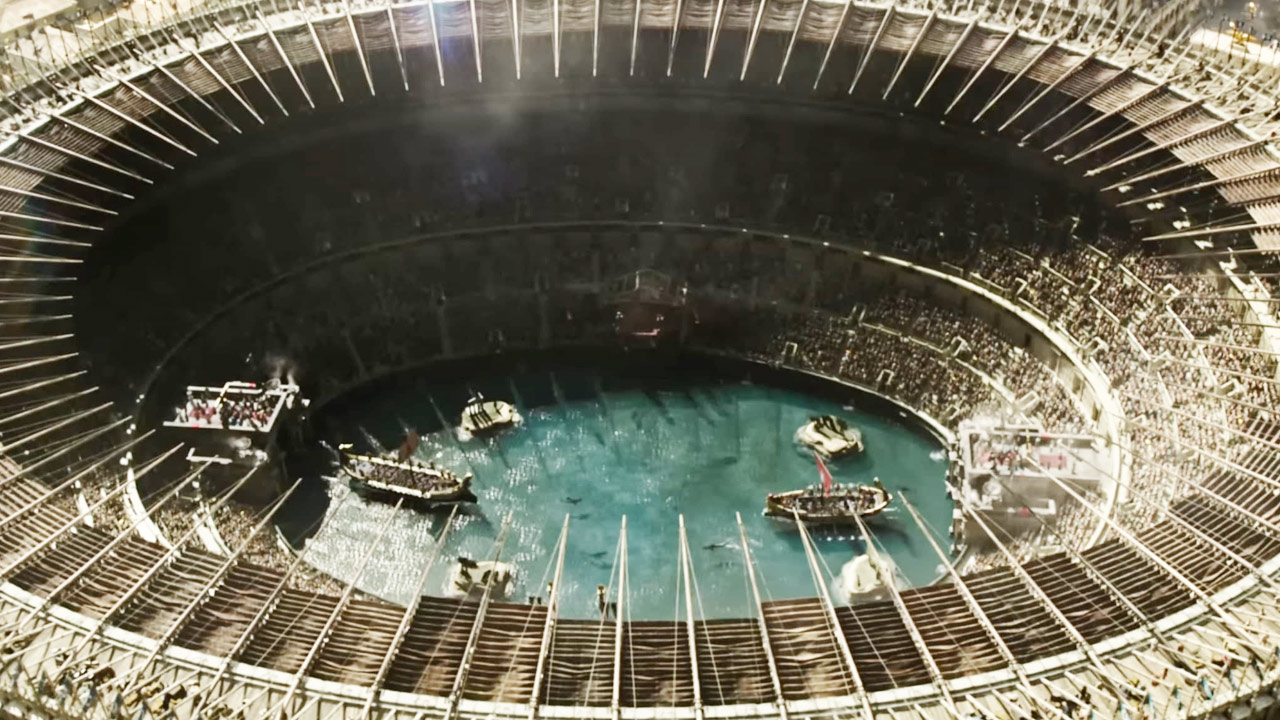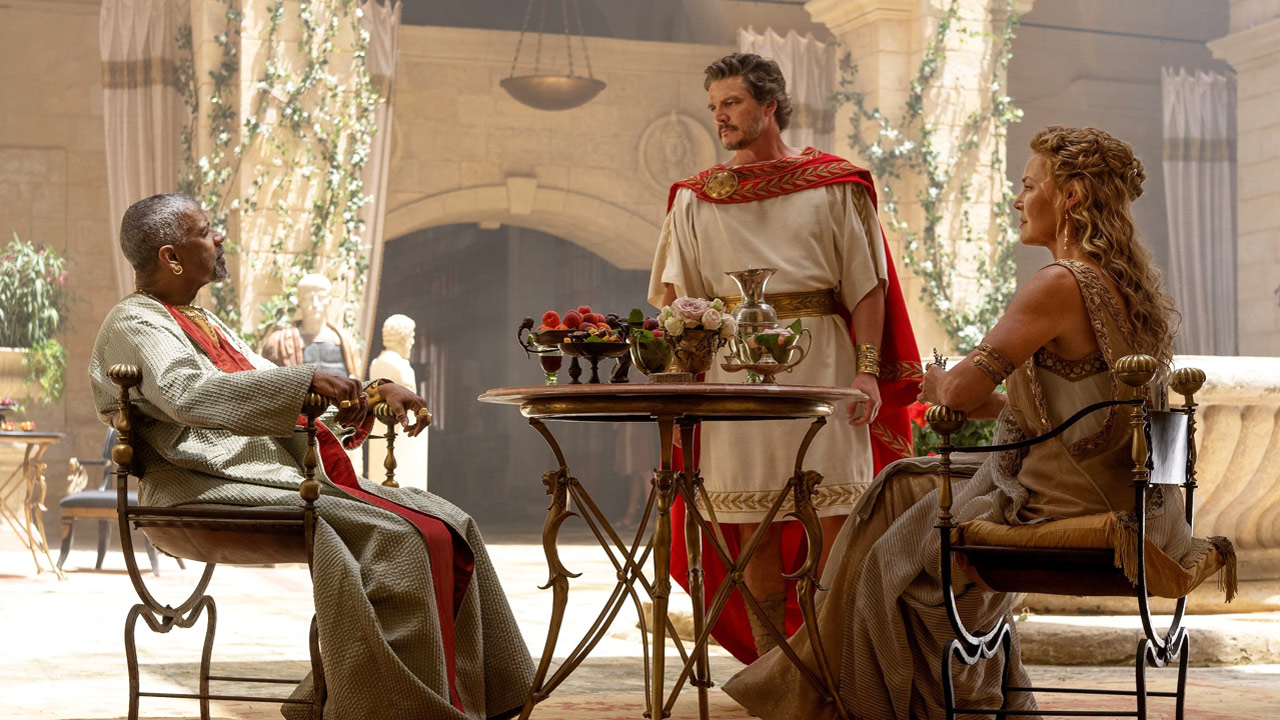The sharks scene is everything that’s wrong with Gladiator 2

As we enjoy our summer, Flicks editor Steve Newall shares some of his favourite reads of the year.
Sharks in the Colosseum sounds pretty bloody entertaining, right? Sadly that’s not the case, writes Luke Buckmaster, who explains the biggest problem hampering Gladiator 2.
Here’s a sentence that’s never been uttered at any point in history: “who cares about Rome?” The Eternal City, once the epicenter of the world, remains a great location for dramatists, synonymous with stories of power-jostling leaders and sweaty gladiatorial combat. All roads lead to Rome, as they say, particularly for blockbuster directors like Ridley Scott: a purveyor of grandly scaled battle sequences. Thus making his journey there inevitable—in 2000’s Gladiator, iconically starring Russell Crowe as Maximus—and his return there unsurprising.
Paul Mescal headlines the long-awaited Gladiator 2 as Lucius, a kind of Maximus lite—simmering rage without Rusty’s magnetism. The protagonist is shipped to Rome and sold to a businessman and power broker—Denzel Washington’s Macrinus—after his people in Namibia are conquered, and his family slaughtered. For a long time it’s a revenge story, Lucius prevailing in various combat challenges with the ultimate goal of exacting revenge on the man who destroyed his life. This time around that’s Pedro Pascal’s General Marcus Acacius.
At some point, however, Scott and screenwriter David Scarpa seem to have twigged that this whole thing was one great big facsimile of the original slowing making its way out of the machine, more a reboot than a sequel. So they decided to mix things up, concluding the revenge arc and pivoting towards another oft-explored space—the old “who will lead Rome?” chestnut. There’s a bizarre focus on animalia, Lucius’ preliminary foes including ferocious baboons, rendered in dodgy-looking CGI. Later he takes on a warrior riding a rhino and, most preposterously, engages in a naval battle in the Colosseum, the arena turned into a swimming pool filled with ravenous sharks.
This scene is a showdown between two ships, one populated with Roman soldiers (boo!) and the other with gladiators (huzzah!). Hand-to-hand combat ensues, resulting of course in various soon-to-be-devoured bodies tumbling into the water. The best way to receive a scene like this is in the spirit of escapist Hollywood pap—something to mash the senses and slack your jaw. The big surprise is that it’s barely any fun at all; you won’t be hooting for more. The scene feels oddly clipped, as if Scott had a fully fleshed-out version but trimmed it right back, figuring—not without reason—that the whole enchilada would make the rest of the film look profoundly stupid.
The famously belligerent octogenarian was always going to be pulled up about the historical veracity of plonking sharks in the Colosseum, and he was always going to bite back (this is the guy who responded to claims that his Napoleon biopic was inaccurate with: “Were you there? Oh you weren’t there. Then how do you know?”). Scott’s response to the inevitable suggestion that maybe just maybe the shark thing didn’t happen, made by a Collider journalist, was:
“You’re dead wrong. The Colosseum did flood with water, and there were sea battles…Dude, if you can build a Colosseum, you can flood it with fucking water. Are you joking? And to get a couple of sharks in a net from the sea, are you kidding? Of course they can.”

So there you have it: if it could have happened, it therefore did, end of story thankyouverymuch. If this chain of logic sounds vaguely familiar, perhaps you’ve read The Hitchhiker’s Guide to the Galaxy and recall the “Infinite Improbability Drive,” a device built on the assumption that, in an infinite universe, the possible—no matter how improbable—not just might have happened but must have (for the record, a professor from the University of Chicago, who’s authored several books on ancient Rome, told The Hollywood Reporter that while water battles did occur in the Colosseum, throwing sharks into the mix is “total Hollywood bullshit”).
It’s telling that Scott’s response wasn’t: this is a blockbuster movie, not a historical document, so lighten up. Instead it was empty Trumpian rhetoric, spin without the spin, not so much anti-intellectual as anti-factual, or anti anything that’s anti him: I’m right, you’re wrong, and you’re an idiot.

Scott’s insistence on the historical viability of sharks in the Colosseum (of all the hills to die on…) reflects the tone of the scene. He’s being serious, totally genuine; there’s no tongue in his cheek. The strange joylessness of this set piece reminded me of the 2012 Australian horror movie Bait, which floods a supermarket with a freak tsunami, resulting in great white sharks patrolling the aisles, munching on shoppers who arrived to buy some meat and veg but found themselves living through a terrible Jaws remake. We enter an experience like that to have a good time, not for heavy-handed drama, but the film is ensconced in deathly seriousness, sucking the fun out of the premise.
Something similar happens in Gladiator 2. Scott the showman can’t resist piling on crazy spectacle, but Scott the dramatist won’t embrace the silliness of it, placing Gladiator 2 in an unsatisfying middle ground. You can’t take it seriously, but you can’t have fun with it either.
Originally published on Flicks Nov 14, 2024.






















